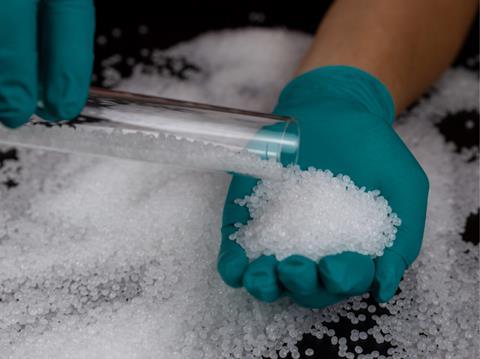
Ducor Petrochemicals and Blue Circle Olefins have signed an agreement to produce and co-market segregated bio-polypropylene and carbon recycled polypropylene (PP). The companies aim to meet increasing market demand in segments such as healthcare, automotive parts, electrical appliances, packaging materials and household items.
Ralph Koekkoek, CEO of Blue Circle Olefins, comments: “the partnership with Ducor marks an important milestone for the development of our MTO project. Jointly we can offer our clients a broad range of polypropylene grades that can be tailored to the customer needs and produced with recycled or 100% bio-based propylene.”
Hanno Schouten, CEO of Ducor Petrochemicals, adds: “The unique setup of the Blue Circle Olefins MTO project in combination with our flexible, customer-focused production assets will allow us to supply the next generation tailor-made, sustainable polypropylene products to our partners. Together with Blue Circle Olefins we are developing the entire value chain, enabling our customers a smooth transition towards 100% circular polypropylene in 2030!”
In related news, this summer Vioneo collaborated with Lummus Technology to utilize its Novolen polypropylene (PP) technology for the ‘world’s first’ industrial scale fossil-free plastics production complex in Antwerp, Belgium, based on green methanol as feedstock. The plastics produced will be ‘fully traceable and CO2 negative’, designed to allow customers to reduce their Scope 3 emissions.
September saw TotalEnergies and CooperVision incorporate certified renewable polypropylene - derived from feedstock like sunflower and rapeseed oils - into blister packs for certain contact lens products. The polypropylene is part of TotalEnergies’ RE:newable range and, according to a Life Cycle Analysis, reduces 2.3 kg of CO2 equivalent per kilogram of polypropylene when used to replace the company’s fossil-based equivalent.
If you liked this story, you might also enjoy:
The ultimate guide to the Packaging and Packaging Waste Regulation in 2025
How are the top brands progressing on packaging sustainability?
Everything you need to know about global packaging sustainability regulation in 2025
The key to increasing the use of reusable packaging in supermarkets














No comments yet